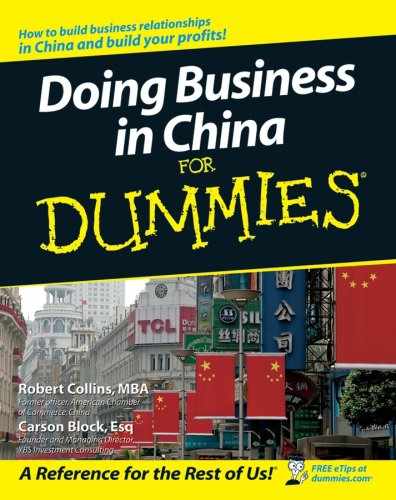Understanding China’s Appeal
The dragon called China has emerged on the world scene as a new economic powerhouse. Since China opened its doors to foreign business in the late 1970s, its transformation has been absolutely remarkable. Over the last 25 years, China has transformed itself from a centrally planned socialist state to a semi-market-driven, semi-command economy. For more than a decade, China’s GDP has grown over 9 percent each year.
China recently attracted over US$70 billion worth of foreign investments in a single year, more than any other country by far! Since China opened her door to overseas companies, approximately US$700 billion in foreign direct investment (FDI) has landed in China. China now ranks as the fourth-largest economy on the planet after the U.S., Japan, and Germany. Soon, it’ll be the second-largest economy in the world. Many economists are saying that China will be the world’s largest economy by 2025.

If the booming economy isn’t enough, this section can help you understand China’s appeal. (For more on potential opportunities for you business, see Chapter 2.)
Cutting costs to meet global demands
Manufacturers based in China have considerable cost advantages over companies producing goods in Europe or North America. Foreign investors in China continue to chase cheaper wages and lower operating costs, which translate into improved margins and greater profits. (However, as we explain in Chapter 13, most companies don’t lower their per-unit labor costs by moving manufacturing to China. Instead, the improved margins usually come from lower utility costs, one-stop shopping for suppliers, and using more flexible manufacturing models that don’t usually work in the West.)
Strong global demand from consumers for low-priced Chinese-made products is driving much of the foreign investment. You’ve no doubt heard about the large multinational companies that have poured billions of dollars in investment in China to produce goods for export to the West. For foreign companies operating there, Made in China can mean making customers in Europe and North America happy by keeping prices as low as possible.
Looking past the veneerChina’s economic miracle can almost take your breath away. As you stroll through a major city, you see signs of progress almost everywhere you look. China’s urban centers are teeming with people and activity. Shiny new offices and residential towers are popping up all over. Construction cranes dot the horizon as far as the eye can see. Newly built automobiles are clogging up the city’s arteries. Consumer product brands from around the world are all the rage. Your day is filled up with wall-to-wall meetings with the Chinese. The opportunities seem to hold much promise for your company in China. At the end of a long day as the sun starts setting in Shanghai, you find your lower jaw suddenly begins to drop. You see the city’s new skyline unfold in front of you as the sun falls behind the hundreds of gleaming new skyscrapers. You think to yourself, “This is a land of opportunity.” In China’s major cities, you’ll no doubt be impressed by the posh five-star hotels, high-speed bullet trains, gleaming new airports, and modern business districts that have risen out of swamps. Some foreigners can easily get a little too carried away with China. But you come to understand that the country has a certain veneer to it. China wants you to believe that everything is A-okay. As you begin your journey, you realize that China is full of promise. But China is full of challenges, too. Many Western businesspeople tend to underestimate the challenges they’ll face. They don’t see the trap door ahead of them before they fall through it. We’ve heard many horror stories of doing business in China — the Chinese scam artists; companies posing as legitimate businesses; manufacturers producing products from stolen intellectual property; and employee theft and embezzlement. The list goes on and on. China can be a very good market for your business. At the same time, be aware that it can be a very bad place for your business. So keep your business on high alert at all times while working in China. |
Accessing a fast-growing local market
Foreign companies aren’t going to China just to lower their production costs (see preceding section); they’re also looking at getting a piece of the fast-growing domestic market. China’s sheer size and growth prospects are a big draw for foreign companies. With the creation of more highly skilled jobs, China’s incomes are rising. And rising incomes translate into greater purchasing power for the Chinese in urban centers.
